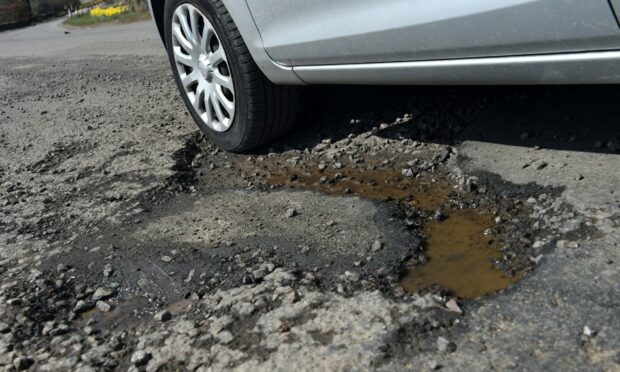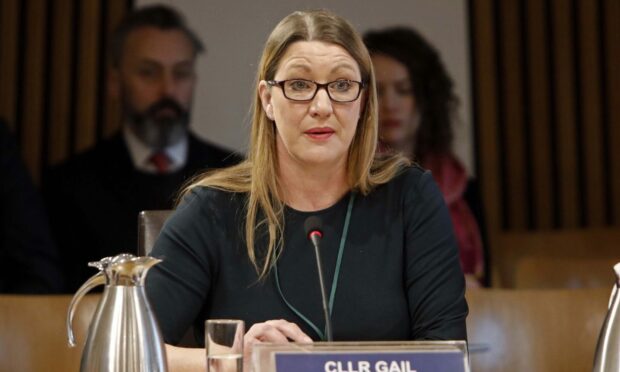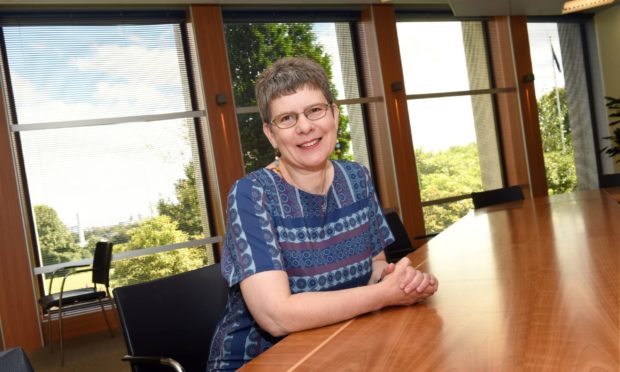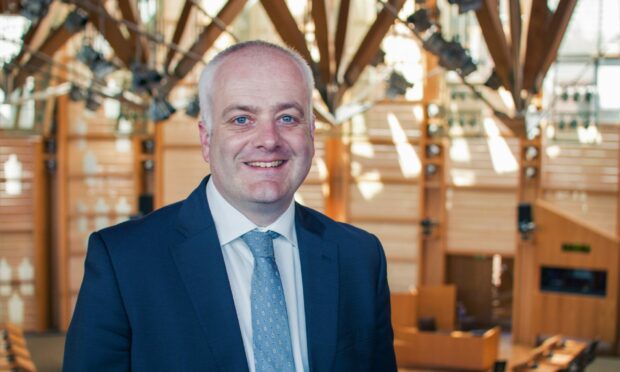Rural councils in Scotland are facing “massive challenges” trying to catch up with a backlog of repairs to pothole-filled roads, a leading councillor warned.
It was claimed that local authorities were ready for a “policy battle” with the Greens in the Scottish Government for the investment they say is needed in the road network.
Senior figures at local government body Cosla highlighted the issue as they pointed to a 17% cut, worth £77.5 million, in the roads and transport budget since 2013/14.
‘Tipping point’
In a plea issued ahead of the Scottish Budget on December 9, Cosla’s leaders said local authorities needed an extra £700 million in total funding simply for overall services to stand still, and it would need to be double that figure in order to “thrive”.
Colsa resources spokeswoman Gail Macgregor warned that councils were facing a “tipping point”.
Asked about cuts to day-to-day spending on roads in recent years, she said: “It’s very much about fixing the pothole, or fixing that stretch of road, or the surface dressing we all know happens annually.
“Now there is a backlog with that, again because of Covid. In rural areas like Dumfries and Galloway or Aberdeenshire, that is a massive issue.
“So we are going to have a wee bit of a policy battle with the Greens because in rural areas we need that investment. We need it in urban areas as well.”
I think there’s massive challenges for us, both in terms of capital and revenue, where roads are concerned.”
Ms Macgregor, a Conservative councillor in Dumfries and Galloway, added: “If our roads infrastructure is poor, and we have underfunding for that, and we can’t get caught up, and material costs have gone up, then we are going to have a problem.
‘Massive challenges’
“There is a lot of challenges around backlog, and then as I say we have inflationary extras that have gone on top, but the work needs done.
“I think there’s massive challenges for us, both in terms of capital and revenue, where roads are concerned.”
Colsa president Alison Evison, an Aberdeenshire councillor, said: “I think it underlines as well the importance of the economic contribution that councils have, that we support economic development in our local areas.
“That involves a wide range of services locally, a wide range of people across our councils working together, to support local jobs, through procurement, through employment, and through training that councils can offer as well, and apprenticeships are really important.
“Obviously the whole transport network is crucial within that whole story – it underlines the importance of councils having enough money to be able to ensure that people can live well locally in all aspects.”
Scottish Greens transport spokesperson Mark Ruskell denied councils would have to “battle” his party over-investment in road repairs, saying: “If the issue is about road maintenance then Cosla needn’t worry about conflict.
“The cooperation deal between Greens and government is explicit that the focus of money and effort should be on maintaining roads, improving safety and providing a realistic and affordable alternative through investing in public transport and active travel.
“Where Greens will oppose councils is on investments on road expansions designed to increase capacity, because we know that this has been proven to increase traffic, not ease congestion.”
A Scottish Government spokesman said: “We welcome this contribution from Cosla on local government funding.
“As always, the Scottish Budget will be informed by voices across Scotland, from the private, public and third sector. The 2022-23 Scottish Budget is expected to be a challenging budget as Scotland continues its recovery from the coronavirus pandemic without any Covid-19 funding from the UK Government.”
“Decisions on local government budget allocations for future years are subject to the outcome of the on-going negotiations with Cosla, the results of which will be confirmed in the Scottish Budget on December 9.”



